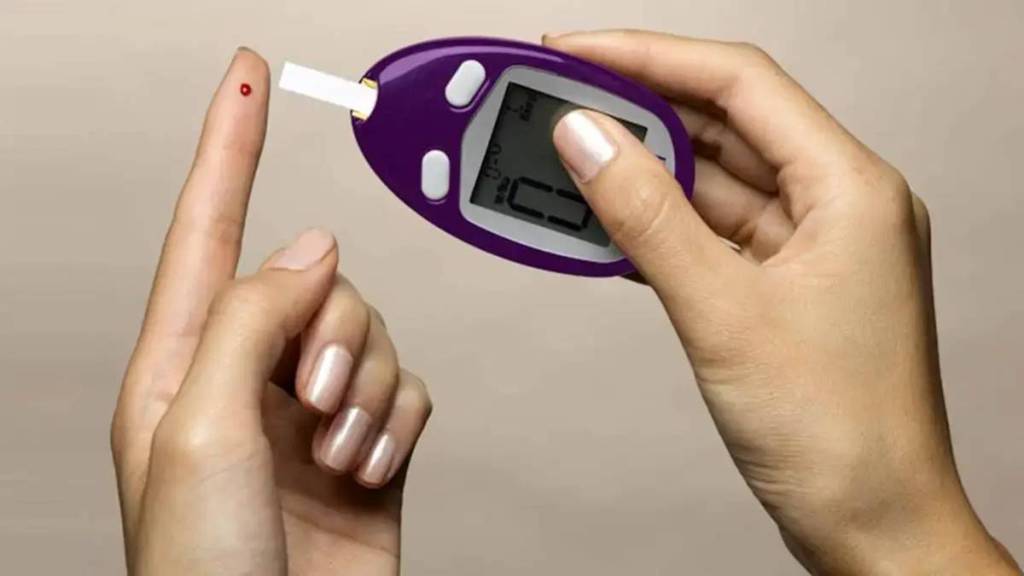By Dr. Siddharth Sain
Diabetes is a chronic metabolic disorder that affects millions of people worldwide, significantly affecting different organs and systems in the human body. Among the many problems associated with diabetes, eye health stands out as a critical area of concern. The association between diabetes and eye problems is well documented, emphasising the importance of exercise control and regular eye exams for people with diabetes.
Let’s look at the effects of diabetes on the eye, exploring the complications that can emerge and the preventative measures that can be taken.
1. Diabetic retinopathy
One of the most common eye problems associated with diabetes is diabetic retinopathy. The condition affects the blood vessels in the retina, the light-sensitive tissue at the back of the eye. Chronically high blood sugar levels in individuals with diabetes can harm the small blood vessels within the retina, driving to their spillage or blockage. This can cause blurry or distorted vision, floaters, or even complete vision loss if left untreated.
Diabetic retinopathy can be divided into two types: non-proliferative and proliferative. Early detection through regular eye exams and appropriate management can help reduce the risk of diabetic retinopathy and prevent vision loss.
2. Diabetic macular edema
Another important part of diabetes that affects the eyes is diabetic macular edema (DME). The macula is a small area in the centre of the retina responsible for sharp and clear vision. In diabetic retinopathy, damaged blood vessels can cause fluid to enter the macula and cause the macula to swell. In some cases, the swelling can lead to blurred central vision, making it difficult to read, recognize faces, or perform other tasks that require good vision. Prompt diagnosis and treatment, such as laser therapy or intravitreal injections, can help control DME and prevent further vision loss.
3. Cataracts
An individual with diabetes also face an increased risk of developing cataracts. A cataract is the clouding of the lens inside the eye, leading to hazy and unclear vision. The lens is responsible for focusing light onto the retina for clarity. Diabetes can cause cataracts by altering the metabolism of the proteins of the lens. Therefore, people with diabetes can develop cataracts at a younger age and are more likely to develop serious illness. Cataract surgery is a safe and effective way to restore vision by replacing the cloud with an artificial lens.
4. Glaucoma
Glaucoma, a group of eye diseases caused by nerve damage, is another condition associated with diabetes. People with diabetes are twice as likely to develop glaucoma than people without diabetes. The exact mechanism linking the two conditions is not fully understood, but it is believed that poor blood flow and blood vessel damage caused by diabetes lead to the development of glaucoma. If glaucoma is left untreated, it can lead to blindness and even blindness. Regular eye exams, early detection, and appropriate treatment (such as eye drops or surgery) are the keys to getting glaucoma under control.
Prevention measures and recommendations
While the impact of diabetes on eye health is significant, there are steps people can take to reduce and control the damage of this problem. It all starts with good diabetes management, which includes maintaining a stable blood sugar level, controlling blood pressure and cholesterol, and using a healthy diet. Regular eye examination by an optometrist or ophthalmologist at least once a year or as recommended is important for early detection of diabetic complications. These eye exams will include a variety of tests to assess vision, a retinal exam, an eye pressure test, and a full eye test.
As a result, diabetes threatens the eyes and can lead to conditions such as diabetic retinopathy, diabetic macular edema, cataracts, and glaucoma. However, the effects of diabetes on the eyes can be reduced with proper management, regular eye exams and timely intervention. It is important for people with diabetes to prioritise their eye health and work with their ophthalmologist to maintain good vision and maintain a healthy lifestyle.
(The author is a Senior Consultant, Sharp Sight Eye Hospitals. The article is for informational purposes only. Please consult medical experts and health professionals before starting any therapy, medication and/or remedy. Views expressed are personal and do not reflect the official position or policy of the FinancialExpress.com.)








